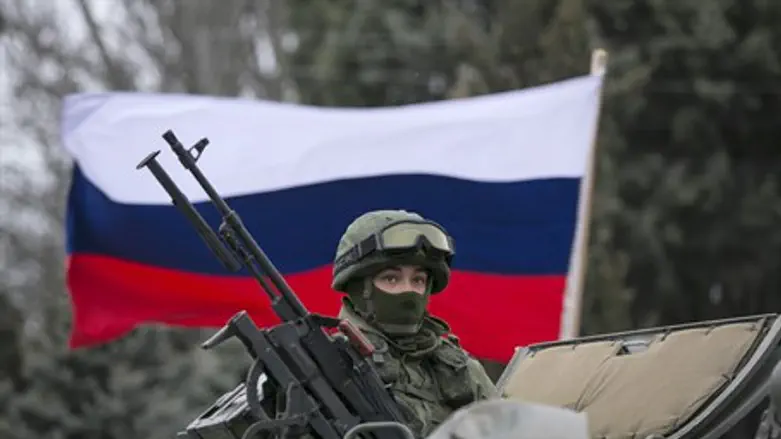
Russian President Vladimir Putin released an official statement recognizing Crimea as a "sovereign and independent state" on Monday evening, after a controversial referendum vote in the peninsula showed overwhelming support for Moscow over Ukraine.
The Russian presidential decree was issued "considering the expression of the will of the people of Crimea at the general Crimean referendum, which was held on 16 March 2014," the text of the decree said, according to BBC.
But while international news agencies scramble to determine what it all means, the Kremlin-backed news agency RT has confirmed that the decree does not mean Crimea has officially seceded from Ukraine - at least, not yet.
RT noted that while the referendum, and Putin's declaration, is a significant step in determining Crimea's status as an independent state, Crimea will have to formally ask Moscow to join Russia before the change is official. After that request, according to the news agency, Putin will have to discuss the move with the Russian parliament to determine Crimea's status within Russia, and the constitution will have to be amended to accommodate for the change.
BBC noted that as of Monday night, Crimea had already completed one of those steps: it had applied to join Russia, a request which is still being reviewed.
International Community Reels
Earlier Monday, both the EU and US issued sanctions on Russia as a result of the referendum - which they, along with Kiev, had declared "illegal." Both the EU and US have also published blacklists against several officials from both Russia and Crimea; the US list included both Crimea's acting leader Sergei Aksyonov and speaker of parliament Vladimir Konstantinov, according to BBC.
Meanwhile, CNN noted Monday that NATO is re-assessing its relationship with Russia over the revolution in Crimea, which many say was the result of a pre-emptive invasion.
The intergovernmental military alliance was hit hard in a cyber-attack Sunday, international media noted, that was linked to tensions over the Crimea referendum vote. NATO has already stated numerous times over the weekend that it is backing Ukraine throughout its crisis with Russia, and now, even more so.
Ukraine Unrest: the Big Picture
The news is the latest development in the crisis in the Crimean peninsula, which exploded earlier this month after 6,000 Russian troops invaded an airport in the Russian-speaking Ukrainian province.
The development is the latest in a series of mass protests in Kiev since early December, when hundreds stormed Independence Square to protest the government's refusal to become a full member of the European Union (EU).
Yanukovych opted to strengthen ties with Russia instead of joining the EU - angering the population which was once under Soviet rule. After a dramatic flight from Kiev and amidst swirling rumors that he is in hiding, Yanukovych remains stubborn about his presidency - while the Opposition leaders, the driving force behind the protests at the nucleus of both conflicts, are now left to deal with an increasingly intransigent Moscow.
Ukraine's acting President Oleksander Turchinov said Kiev was ready for negotiations with Russia, but it would never accept the annexation of Crimea, according to BBC.
Meanwhile, Ukrainian acting Prime Minister Arseniy Yatsenyuk told CNN Monday that there is "a definite possibility of a Russian military invasion."
"There is only one solution to this crisis: a peaceful one," Yatsenyuk reflected.
"But we offer peace, and Russia offers war."